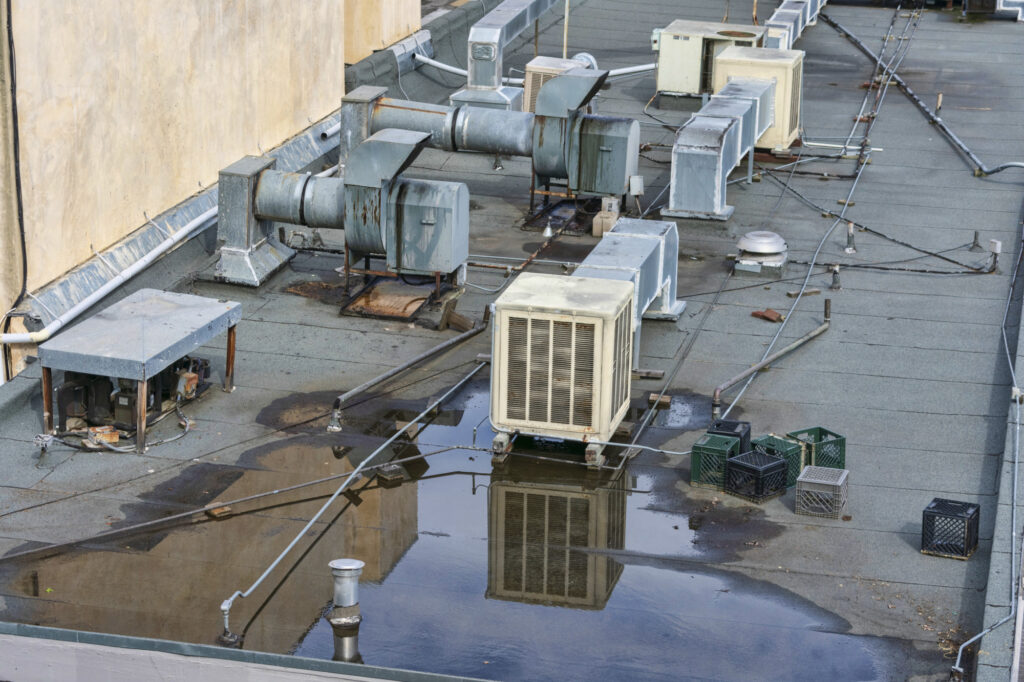Before choosing a commercial roofer, you should ask essential questions to guarantee you make the right decision. Confirm if the contractor is licensed, bonded, and insured for your protection. Ask about their experience and request references to assess their track record. Inquire about the types of roofing systems they specialize in and whether they provide maintenance plans. Don’t forget to discuss how they handle unexpected issues and change orders. By getting these answers, you’ll gain clarity and confidence in your choice. There’s plenty more to evaluate, so you’ll want to investigate further for the best outcome.
Why Asking the Right Questions Matters When Hiring a Commercial Roofer
Why should you prioritize asking the right questions when hiring a commercial roofer?
It’s vital to assess a contractor’s expertise and reliability, guaranteeing they meet your project’s specific needs. Inquire about warranty options; understanding these terms gives you peace of mind regarding future issues.
Also, confirm that the contractor has insurance to protect you from potential liabilities during the project. Discuss their experience with similar projects, as this can indicate their ability to manage complexities effectively.
Establishing clear communication protocols upfront fosters transparency and responsiveness, essential for successful project management.
1. Are You Licensed, Bonded, and Insured?
When hiring a roofer, confirming they’re licensed, bonded, and insured is non-negotiable.
This not only guarantees compliance with local regulations but also protects you from potential financial losses.
Verify their credentials through state or local online resources to safeguard your investment and peace of mind.
Why Licensing and Insurance Matter
Choosing the right roofer means ensuring they’re licensed, bonded, and insured, which safeguards your investment and peace of mind.
Licensing shows that the contractor meets local regulations and complies with state laws, giving you confidence in their qualifications. Bonding acts as a financial guarantee that they’ll complete the job as promised, protecting you from potential losses.
Insurance, including general liability and workers’ compensation, shields you from financial liability if accidents or injuries occur on the job site.
Always verify the contractor’s licensing and insurance status through online portals or local regulatory bodies. This step is essential for ensuring safety and compliance, allowing you to focus on what matters most—your business and peace of mind.
How to Verify Credentials
Confirming a roofer’s credentials is an essential step in the selection process, guaranteeing they meet the necessary standards for quality and safety.
Here’s how to verify their credentials effectively:
- Check Licensing: Guarantee the contractor has a license, demonstrating compliance with state and local regulations.
- Verify Bonding: Confirm they’re bonded, which offers you financial protection in case of incomplete work or contractor default.
- Request Insurance: Request proof of adequate insurance to help protect you from liability for accidents or damages during the project, ideally with coverage of at least $1 million in general liability.
2. How Long Have You Been Working on Commercial Roofing Projects?
How long has the contractor been working on commercial roofing projects? This question is crucial because the contractor’s experience can greatly impact the success of your roofing project.
Contractors with over five years of experience are often better equipped to navigate industry-specific challenges and handle unexpected issues that may arise. Their established track record usually means they’ve successfully completed numerous projects, which you can verify through client testimonials.
Moreover, their experience in the commercial sector indicates familiarity with local building codes and regulations, ensuring compliance. A seasoned contractor is also more likely to offer robust warranties, reflecting their confidence in the quality of their workmanship and materials.
Choose wisely; their experience could save you time, money, and frustration in the long run.
3. Can You Provide References or Case Studies?
When evaluating a roofer, ask for references and case studies to understand their past performance.
Look for reviews that highlight customer satisfaction, project outcomes, and how well they handled challenges.
This information will give you a clearer picture of the contractor’s reliability and expertise.
What to Look for in Reviews and Testimonials
What should you prioritize when evaluating reviews and testimonials for a potential roofer? Focus on clear indicators of a contractor’s reliability and expertise.
Here are three key aspects to evaluate:
- Consistency: Look for recurring themes in reviews that highlight the contractor’s quality of work and attention to detail across various projects.
- Positive Ratio: Assess the number of positive reviews compared to negative ones; a high ratio often signals overall customer satisfaction and dependability.
- Specific Examples: Seek testimonials that provide detailed accounts of completed projects, showcasing the contractor’s ability to tackle different roofing challenges.
4. What Types of Commercial Roofing Systems Do You Work With?
Choosing the right commercial roofing system can markedly affect your building’s performance and longevity. As you evaluate potential commercial roofing contractors, inquire about the specific roofing systems they work with.
Options like Single Ply, Built Up, Modified Bitumen, and Metal roofing offer unique benefits tailored to various environmental conditions and building types. Understanding how these systems perform in your local climate is vital for energy efficiency and durability.
Ask about the lifespan and maintenance needs of each option, as these factors will impact your long-term planning and costs. Confirm that any chosen system complies with local building codes and regulations, guaranteeing safety and reliability for your property.
Your informed choice will lead to a more sustainable investment.
5. Are Your Workers OSHA-Certified and Manufacturer-Trained?
How can you guarantee that your roofing project is handled safely and effectively? One key factor is ensuring that the workers are OSHA-certified and manufacturer-trained. This not only demonstrates compliance with safety regulations but also enhances the quality of the installation.
Here are three important reasons to confirm their qualifications:
- Safety First: OSHA-certified workers have undergone training that minimizes workplace accidents, keeping everyone safe.
- Quality Assurance: Manufacturer-trained workers are knowledgeable about specific installation techniques, ensuring your roof lasts.
- Warranty Protection: Many manufacturers require trained professionals for warranty validation, giving you peace of mind about your investment.
6. What’s Your Process for Project Planning and Communication?
Before you commit to a roofing contractor, it’s essential to understand their project planning and communication process.
Ask how they outline the project steps and keep you updated throughout, as clear communication can prevent misunderstandings.
Clarifying their methods for addressing changes in the project scope will also help guarantee a smooth experience from start to finish.
Pre-Job Planning
What steps do you take to guarantee effective project planning and communication? Pre-job planning is essential for a successful roofing project.
Start by conducting a thorough site inspection to identify specific needs. Then, make sure you have a clear outline of project steps, including timelines and estimated completion dates. This helps manage expectations and keeps everyone on the same page.
Consider these key components:
- Provide detailed estimates that include material and labor costs, while addressing potential disruptions.
- Establish a communication plan for unforeseen issues, promoting transparency throughout the project.
- Commit to regular updates, allowing for open channels where you can voice inquiries and concerns.
Staying in Touch During the Project
Maintaining clear communication during the project is essential for its success and your peace of mind. Establish a communication plan with your contractor that identifies primary contacts for timely updates and issue resolution.
Confirm how often you’ll receive project updates; regular communication helps manage expectations and address concerns promptly. Discuss your preferred communication methods, whether by phone, email, or in-person meetings, to guarantee you’re aligned.
Ask the contractor how they’ll inform you of any changes to the project timeline or scope, minimizing disruptions. Furthermore, confirm there’s a defined procedure for documenting and addressing any concerns that arise.
This fosters collaboration and effective problem-solving, keeping the project on track and maintaining transparency throughout the process.
7. What Warranty Options Do You Offer?
How do you secure the longevity of your investment in a new roof? Understanding the warranty options a commercial roofing company offers is essential for your peace of mind.
Here are three key aspects to take into account:
- Workmanship vs. Manufacturer Warranty: Make sure both are covered for thorough protection against defects.
- Duration and Coverage Specifics: Ask about the length of the warranty and any exclusions that could affect claims.
- Transferability: Confirm if the warranty is transferable, enhancing your property’s value for future owners.
8. How Do You Handle Cleanup and Waste Disposal?
When selecting a roofer, it’s essential to ask how they handle cleanup and waste disposal.
Responsible contractors prioritize recycling old roofing materials and guarantee a clean site post-project.
Understanding their methods for debris removal will help you gauge their commitment to maintaining a safe and tidy environment.
Disposing of Old Roofing Materials Responsibly
As you consider roofing projects, understanding how your contractor handles the cleanup and disposal of old roofing materials is crucial for both safety and environmental responsibility.
Responsible disposal can prevent environmental hazards and promote sustainability. Here are three key points to discuss with your contractor:
- Recycling Programs: Ask if they utilize recycling options to minimize landfill waste.
- Cleanup Procedures: Verify they’ve a plan for safely removing debris and protecting your property and landscaping during the process.
- Regulatory Compliance: Confirm they follow local regulations and obtain necessary permits for waste disposal.
9. Do You Offer a Commercial Roof Maintenance Plan?
Are you aware of the importance of a commercial roof maintenance plan? Investing in such a plan can save you from costly repairs and extend your roof’s lifespan by up to 50%.
A solid maintenance plan typically includes regular inspections, allowing you to detect issues early. Many roofing experts recommend scheduling these inspections twice a year to guarantee peak performance.
Your plan should cover essential services, like cleaning gutters, repairing minor leaks, and checking for wear and tear. In addition, adhering to a maintenance plan helps you comply with warranty requirements, keeping your coverage valid.
Before choosing a roofer, verify they offer a thorough commercial roof maintenance plan tailored to your needs. It’s an investment in your property’s future.
10. How Do You Handle Unexpected Issues or Change Orders?
How do you guarantee that unexpected issues or change orders are managed effectively during a roofing project? A reliable contractor will have protocols to assure transparency and communication throughout the process.
Here are three key aspects to inquire about:
- Identification and Communication: How do they identify unexpected issues, and how will they communicate these to you promptly?
- Change Order Protocol: What’s their process for documenting change orders, including additional costs and timelines?
- Contingency Budgets: Do they establish a contingency budget in the initial estimate to cover unforeseen expenses without disrupting the project flow?
Thinking of Moving to a New Roofing Partner?
Considering a switch to a new roofing partner? It’s essential to evaluate the experience level of potential contractors, especially since commercial roofing demands specialized knowledge.
Make certain that any new partner is licensed and insured to protect yourself from potential liabilities and comply with local regulations.
Request detailed references and testimonials to understand their reliability and the quality of their work.
Discuss their approach to project management, including communication practices and adherence to timelines.
Don’t forget to ask about warranty options and maintenance plans; these can provide long-term assurance for your investment.
Need Help Choosing the Right Commercial Roofer? Ask Heins Contracting
If you’re looking for a reliable commercial roofer, Heins Contracting is here to help.
We’ll answer all your questions up front and provide a detailed quote tailored to your needs.
Don’t hesitate—get in touch today for a consultation and let’s discuss your roofing project.
We’ll Answer All Your Questions Up Front
When you’re searching for the right commercial roofer, asking the right questions upfront can make all the difference.
You deserve transparency, so make certain you get clear answers about:
- Insurance and Licensing: Confirm they’re fully licensed and insured to protect yourself from potential liabilities.
- Experience: Ask about their experience with similar projects to assess their ability to handle your specific roofing needs.
- Warranties: Understand the types of warranties they offer, including workmanship and materials, to guarantee quality and durability.
Get a Quote or Consultation Today
Are you ready to take the next step in your roofing project? Getting a quote or scheduling a consultation is essential for making informed decisions.
A detailed quote allows you to compare prices and services, ensuring transparency in costs. During the consultation, you can discuss your specific roofing needs, enabling the contractor to tailor their proposal to your building’s requirements.
This is also the perfect time to ask about their experience with similar projects and the expected timeline, helping you plan effectively to minimize disruptions. Furthermore, clarifying warranty options during this process gives you peace of mind about your investment.
Don’t hesitate—contact Heins Contracting today to get started on your roofing journey!




